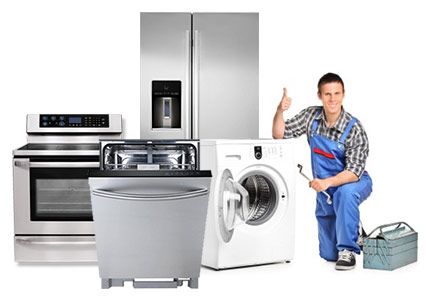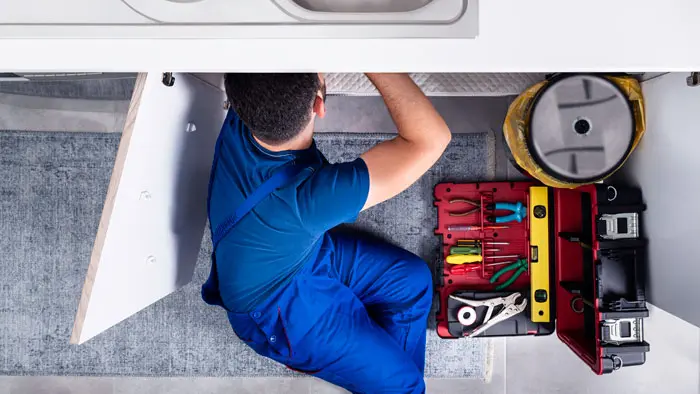Step-by-Step Vent Cleaning Tips – Dependable Refrigeration & Appliance Repair Service Dryer repair near me
Step-by-Step Vent Cleaning Tips – Dependable Refrigeration & Appliance Repair Service Dryer repair near me
Blog Article
The Ultimate Overview to Recognizing Home Appliance Repair Work in your home
When your fridge stops cooling or your stove declines to warm, it can feel overwhelming. Comprehending home appliance repair in the house can conserve you money and time. You'll discover to identify signs and symptoms, make use of vital tools, and follow a systematic troubleshooting procedure. But before you begin, there are essential safety preventative measures you need to think about. What are the most common issues, and just how can you fix them? Let's check out the basics.
Typical Appliance Problems and Their Signs
When your appliances start acting up, it's necessary to recognize the indications early on. Overlooking them can bring about bigger problems and costly repair work. If your fridge isn't cooling properly, you might notice warm areas or condensation forming. This could show a falling short compressor or a blocked vent.Your dishwashing machine might show troubles with dirty dishes or uncommon noises throughout cycles. If you listen to grinding or clanking, it's time to investigate.A cleaning machine that won't spin or drain pipes can leave you with soggy laundry, recommending a blocked drain or a malfunctioning pump.Lastly, if your oven's temperature appears off or it takes permanently to pre-heat, you may be managing a defective thermostat. By staying sharp to these symptoms, you can attend to concerns before they rise into significant repair work.
Necessary Devices for Device Repair Service
When you're tackling appliance repair services in the house, having the right devices is essential. Basic hand devices like screwdrivers and pliers will aid you dismantle and repair numerous devices, while electric testing devices assure you're functioning securely with wiring. Let's go over what you need to start on your repair service trip.
Basic Hand Devices
Having the right devices is essential for effective appliance repair work in your home. Begin with a reputable screwdriver collection, consisting of both flathead and Phillips types, as screws prevail in device assembly. Pliers are also vital; they assist with gripping, twisting, and reducing cords or small components. A set of needle-nose pliers can reach difficult situations quickly. You'll need a good adjustable wrench for tightening up or loosening up nuts and bolts. An utility knife is handy for cutting via packaging or insulation. Lastly, don't neglect a durable workbench or surface to safely arrange your devices and parts. With these basic hand devices, you'll be well-prepared to take on most home appliance repairs that come your means.
Electrical Testing Gadgets
Together with fundamental hand tools, electrical screening tools play an important duty in home appliance fixing. These devices assist you detect electric problems and warranty devices work safely. A multimeter is crucial; it measures voltage, present, and resistance, enabling you to determine problems swiftly. A non-contact voltage tester is one more essential, letting you discover online wires without making direct contact, enhancing your security. Clamp meters are fantastic for determining present flow in cords without disconnecting them, conserving you time and effort. In addition, circuit testers can swiftly inspect if electrical outlets are operating properly. By utilizing these tools, you'll improve your troubleshooting process and enhance your repair skills, making appliance upkeep a lot less complicated.
Step-by-Step Overview to Diagnosing Appliance Issues
When your device acts up, it can be aggravating, yet identifying the concern doesn't need to be overwhelming. You'll find out to determine typical problems and use efficient troubleshooting methods. Allow's stroll via the actions to obtain your appliance back in working order.
Usual Appliance Troubles

Troubleshooting Techniques Explained

Repairing Major Cooking Area Home Appliances: A Closer Look
Have you ever asked yourself just how to take on common problems with your kitchen devices? Repairing major kitchen area home appliances like fridges, ovens, and dish washers can be much easier than you think. Beginning by determining the trouble-- whether it's a refrigerator not cooling down or a stove that will not heat. Often, a basic reset or examining the power source can solve the issue.For refrigerators, clean the condenser coils and check ge refrigerator repair near me the door seals. If your stove's not heating, evaluate the burner and thermostat. Dishwashers might simply require a clean filter or a reset to obtain them back at work. Constantly disconnect the appliance before diving into repair work to guarantee your safety.Don' t neglect to seek advice from the individual handbook for specific fixing pointers associated to your design. With a little bit of perseverance and the right tools, you can with confidence take on appliance repairs and conserve money in the procedure!

Troubleshooting Laundry Appliances: Tips and Techniques
When your laundry appliances start breaking down, it can feel frustrating, however troubleshooting them doesn't need to be a trouble. Start by checking the power supply. Validate the appliance is plugged in and the electrical outlet is operating. Next off, examine the door or lid switch; a defective switch can prevent the equipment from operating.For washers, if it's not spinning, inspect for unbalanced lots. Redistributing the garments could resolve the problem. If your dryer isn't home heating, clean the lint filter and check the air vent for blockages.Listen for unusual noises; they can suggest an issue. If your device is leaking, check the pipes for cracks or loosened links. Record any type of error codes presented on electronic screens, as they can direct you in recognizing the problem. Consult the customer manual for specific troubleshooting pointers connected to your version.
Safety And Security Precautions to Take During Services
Before you begin any home appliance repair services, it's necessary to focus on security to avoid mishaps or injuries. First, disconnect the device or shut off the circuit breaker to assure no power reaches it while you work. Usage insulated devices to reduce the threat of electric shock. Wear safety and security goggles and handwear covers to shield on your own from sharp edges or debris (Dependable Refrigeration & Appliance Repair Service Washer repair near me).Make certain your work area is neat and well-lit, so you can see what you're doing. Keep children and animals far from the area to stay clear of interruptions and possible hazards. If you're managing gas home appliances, be added careful; look for leaks before proceeding.Take your time, and don't rush through repair services. If you feel unclear regarding any action, it's better to stop and research than to guess. Adhering to these preventative measures will assist develop a much safer atmosphere for your do it yourself home appliance repair work task
When to Call a Professional for Help
How do you understand if it's time to call in a professional for appliance repair services? If you have actually tried basic troubleshooting without success, it's a clear indication. For example, if your home appliance still won't begin or reveals uncommon noises after resetting it, don't think twice to look for professional help.When you observe leaks, smoke, or shedding scents, focus on safety and security and call a pro right away. These issues can cause even more substantial damage or pose threats to your home.Also, if your appliance is under warranty, getting in touch with a specialist is often the very best route. They can guarantee that fixings won't invalidate your service warranty, conserving you money in the long run.Finally, if you're unclear or uneasy with complex repairs, small appliance repair near me it's wise to leave it to the specialists. Keep in mind, dealing with challenging problems without the appropriate proficiency can cause expensive blunders. Trust an expert when in doubt!
Regularly Asked Concerns
How Can I Avoid Home Appliance Problems in the Future?
To avoid appliance issues in the future, you must perform regular upkeep, look for wear and tear, tidy filters, and stay clear of overloading. Staying proactive will certainly aid prolong their lifespan and maintain them running efficiently.
What Are one of the most Usual DIY Appliance Fixing Mistakes?
You might forget security preventative measures, skip repairing steps, or make use of incorrect tools when trying DIY appliance repair work. Hurrying imp source the procedure or disregarding supplier standards can bring about more significant problems and pricey blunders. Remain client and informed!
How Do I Know if a Part Requirements Substitute?
You can inform if a component requires replacement by checking for unusual sounds, leaks, or inconsistent performance. If the appliance has a hard time to operate properly or shows visible damages, it's most likely time for a substitute.
Can I Use Generic Parts for Home Appliance Repairs?
Yes, you can utilize generic parts for appliance repairs, but determine they work - Fixes washers and dryers Oro valley Dependable Appliance Repair. Generic parts could save you money, yet they can influence efficiency or longevity, so weigh your options meticulously before deciding
What Warranties Cover Device Repairs?
The majority of device service warranties cover repair work for manufacturing issues, yet they frequently leave out damage from abuse. Examine your service warranty terms very carefully, as some might need making use of certified technicians and original parts for protection to remain legitimate.
Report this page